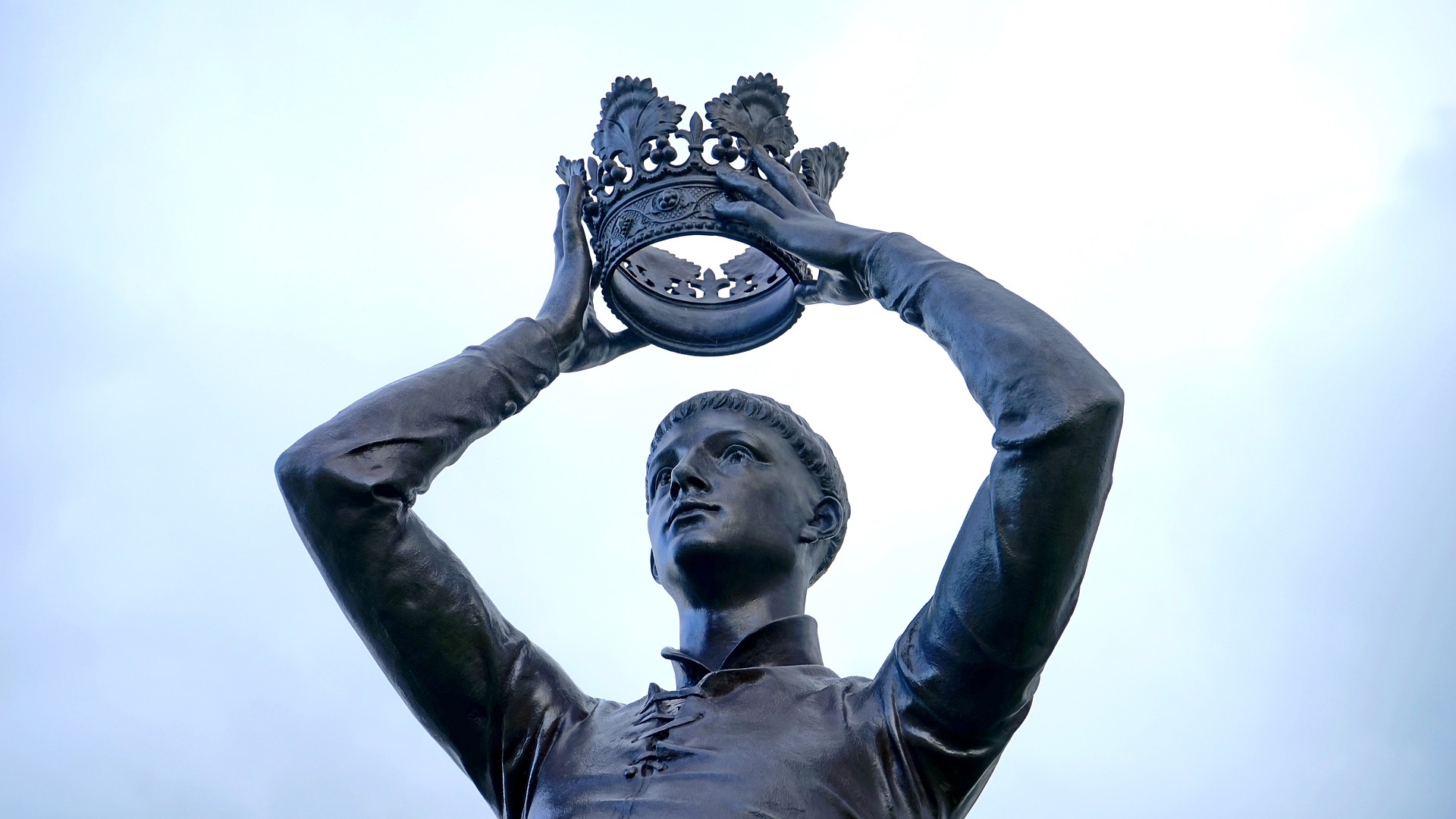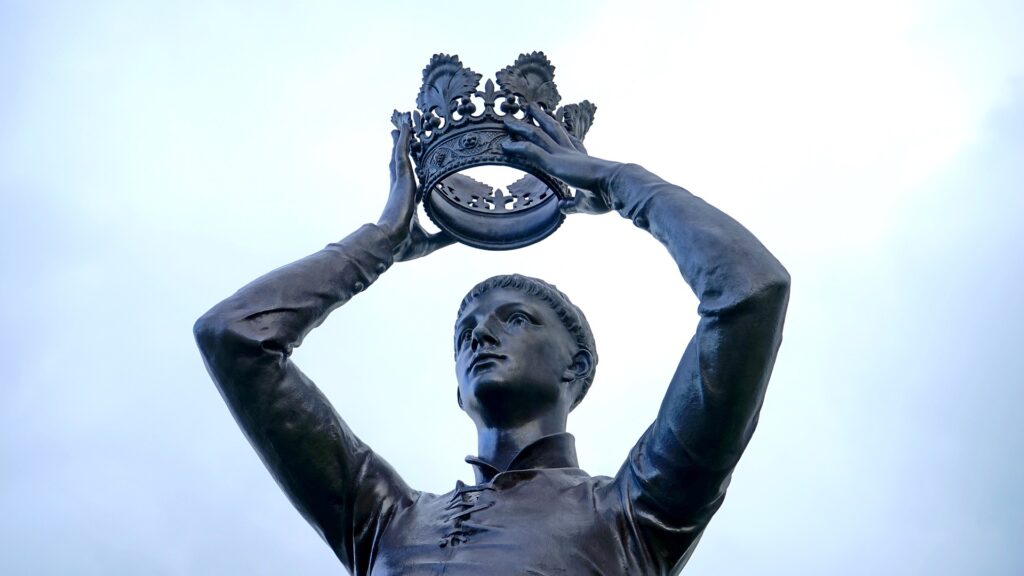Analyze the character of King Lear. How does Shakespeare portray Lear’s journey from a powerful monarch to a vulnerable and broken man? What factors contribute to his downfall?

The Tragic Evolution of King Lear: Shakespeare’s Complex Portrayal of a Flawed Monarch
Introduction:
In William Shakespeare‘s play, King Lear, the character of Lear is a complex and multi-dimensional figure whose journey from a powerful monarch to a vulnerable and broken man is marked by tragic consequences. Shakespeare’s masterful characterization of Lear explores the depths of human nature, delving into themes of pride, folly, familial relationships, and the consequences of misguided decisions. This analysis will delve into the intricacies of Lear’s character, examining his motivations, strengths, flaws, and the factors that contribute to his tragic downfall.
The Early Depiction of King Lear:
At the outset of the play, King Lear is portrayed as a proud and authoritative ruler, accustomed to absolute power and unquestioning loyalty. His decision to divide his kingdom among his daughters is driven by his desire for flattery and the misguided belief that love can be measured in grandiose speeches. However, Lear’s early characterization also reveals a capacity for genuine love and affection, as seen in his relationship with his loyal daughter Cordelia.
The Transformation of Lear:
As the narrative unfolds, Lear undergoes a profound transformation that exposes his vulnerability and challenges his previous notions of power and authority. Shakespeare masterfully portrays Lear’s descent into madness, stripping him of his sanity, dignity, and even his kingdom. This transformation is crucial in highlighting the complexities of Lear’s character and the tragic nature of his journey.
Flaws and Tragic Flaws:
Lear’s character flaws play a significant role in his downfall. Pride and arrogance are at the core of Lear’s tragic trajectory. His inability to accept honest criticism and his insistence on being treated as a deity contribute to his downfall. Lear’s tragic flaw lies in his failure to recognize genuine love and loyalty, as he is swayed by empty flattery and superficial displays of affection.
Another key flaw is Lear’s impulsive and hasty nature. His rash decision to banish Cordelia and divide his kingdom without careful consideration leads to disastrous consequences. This impetuosity stems from his misguided belief that external shows of love are more valuable than true affection. Lear’s inability to discern the motives of those around him fuels the tragic events that unfold.
Factors Contributing to Lear’s Downfall:
- Familial Betrayal: Lear’s downfall is deeply intertwined with the theme of familial betrayal. The treachery of his two eldest daughters, Goneril and Regan, who manipulate his trust and exploit his vulnerabilities for personal gain, plays a significant role in Lear’s descent into madness. Their gradual stripping of his power and authority showcases the tragic consequences of familial betrayal.
- Lack of Filial Insight: Lear’s flawed perception of his daughters and his inability to discern their true characters contribute to his downfall. He fails to recognize Cordelia’s genuine love and loyalty, favoring Goneril and Regan instead. This lack of filial insight exposes Lear’s vulnerability and sets in motion the tragic events that follow.
- Loss of Identity: As Lear loses his kingdom, power, and sanity, he undergoes a profound loss of identity. Stripped of his royal title, Lear confronts the harsh realities of life, experiencing homelessness and exposure to the elements. Shakespeare uses vivid imagery and powerful language to convey Lear’s internal turmoil and shattered sense of self. This loss of identity intensifies Lear’s descent into madness and adds to the tragic nature of his character.
- Lack of Wise Counsel: Lear’s downfall is exacerbated by his refusal to heed wise counsel and surround himself with advisors who possess wisdom and integrity. He dismisses the faithful Kent, who speaks truth to him, and instead embraces the sycophantic flattery of Goneril and Regan. Lear’s isolation from reliable counsel leaves him vulnerable to manipulation and blinds him to the consequences of his actions.
- Aging and Fragility: Lear’s advanced age and the physical and mental fragility that accompany it contribute to his downfall. Shakespeare portrays Lear as a man nearing the end of his life, facing mortality and grappling with his diminishing faculties. The combination of declining physical strength and the weight of his emotional turmoil exacerbates his vulnerability and adds to the tragedy of his character.
- Misplaced Trust: Lear’s tragic journey is deeply intertwined with his misplaced trust in those around him. He places his faith in his daughters’ declarations of love, failing to recognize their deceitful intentions. His unquestioning trust in Goneril and Regan blinds him to their true nature and sets in motion the series of events that lead to his ultimate downfall.
- Fate and Cosmic Justice: Shakespeare weaves the theme of fate and cosmic justice into Lear’s narrative, suggesting that his downfall is not solely the result of his own actions, but also a product of a larger, universal order. Lear’s tragic fate is linked to the idea of divine retribution, as his hubris and failure to uphold justice are met with the consequences of his actions.
Conclusion:
King Lear’s character arc is a profound exploration of the human condition, highlighting the complexities of pride, folly, and the tragic consequences of flawed decision-making. Shakespeare skillfully portrays Lear’s transformation from a powerful monarch to a vulnerable and broken man, uncovering the factors that contribute to his downfall.
Lear’s flaws, including pride, impetuosity, and a lack of discernment, combined with familial betrayal, loss of identity, and a refusal to heed wise counsel, all play significant roles in his tragic trajectory. Shakespeare’s nuanced depiction of Lear’s descent into madness exposes the fragility of human nature, the consequences of misguided decisions, and the intricate web of familial relationships.
Through Lear’s tragic journey, Shakespeare prompts the audience to reflect on their own flaws and the potential for redemption amidst suffering. Lear’s character serves as a cautionary tale, reminding us of the importance of humility, wisdom, and genuine human connections in navigating the complexities of life.
*****
Read More: Questions and Answers from King Lear by William Shakespeare


